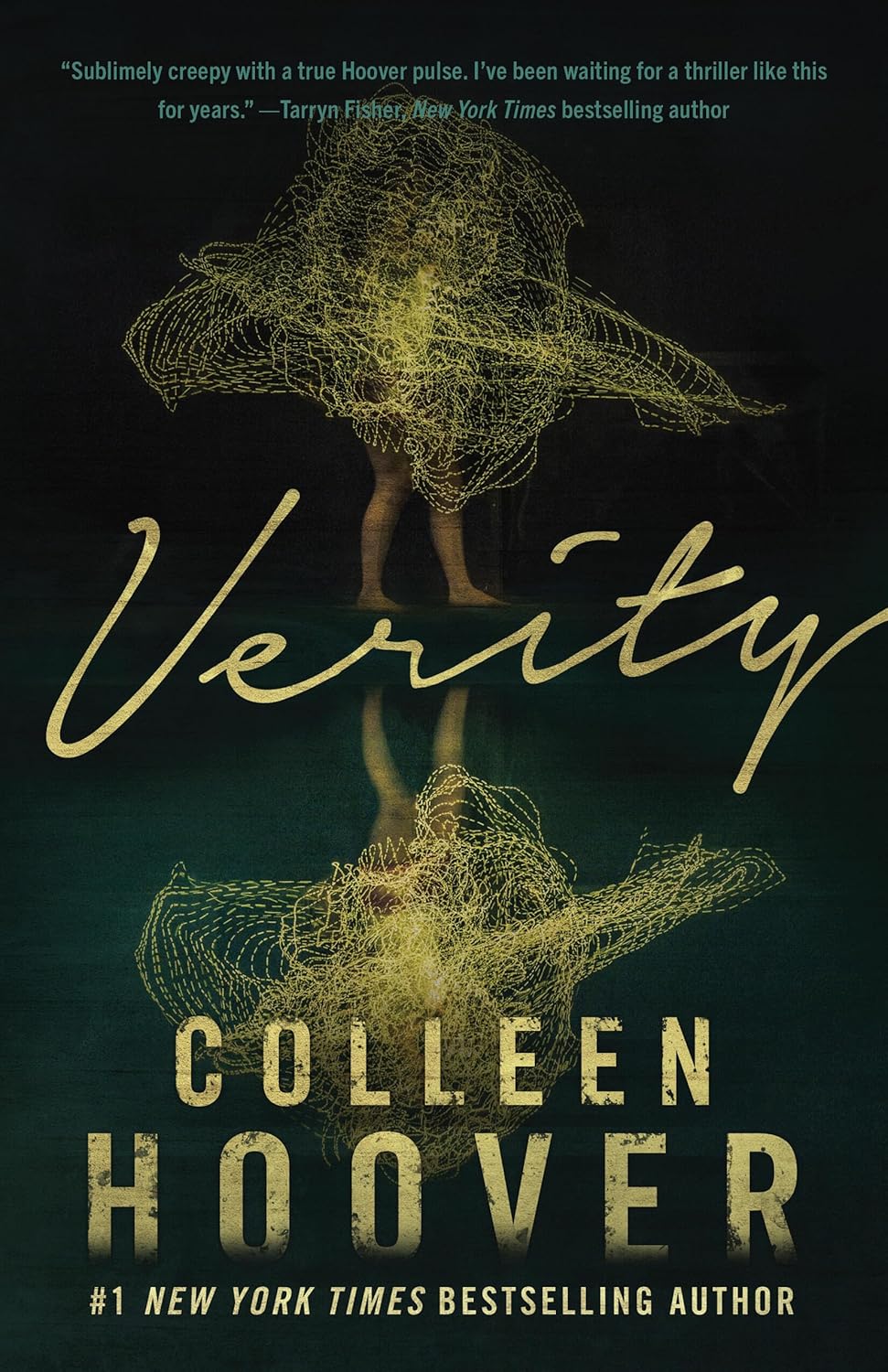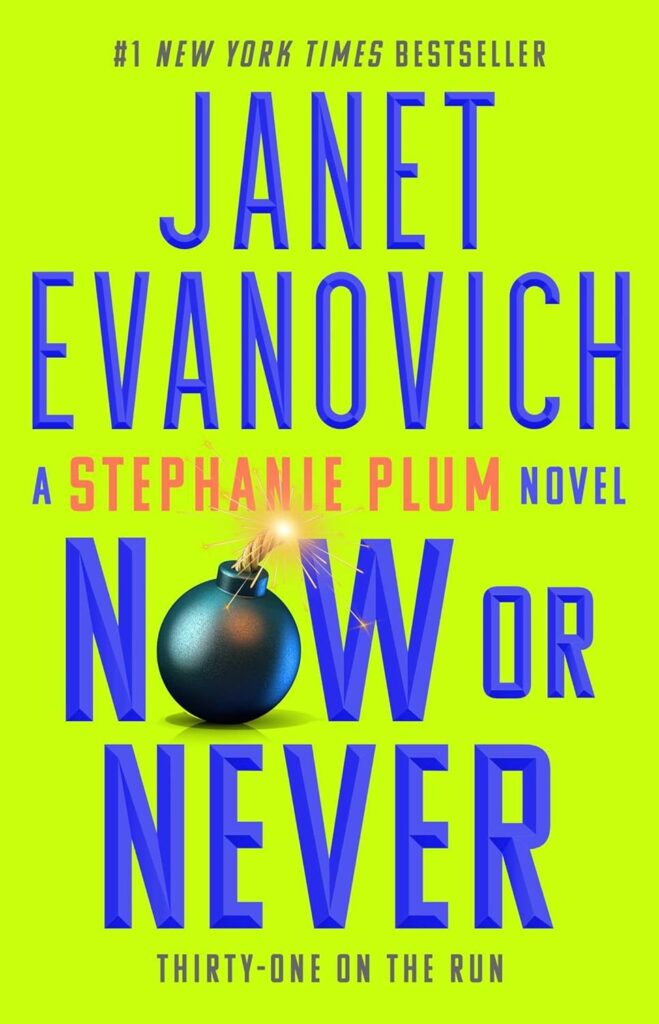Colleen Hoover is a name synonymous with contemporary romance, often delivering heart-wrenching love stories that leave readers utterly captivated. However, with Verity, she ventured into a vastly different, far darker territory, surprising many of her long-time fans and garnering a whole new legion of admirers for her ability to craft a truly disturbing psychological thriller. This isn’t just a romance with a hint of suspense; it’s a full-blown descent into madness, manipulation, and the terrifying secrets that can lurk beneath the surface of a seemingly perfect life. Our Verity book review aims to explore why this novel has become such a polarizing and compelling read, captivating millions and igniting endless debates.
From the very first page, Verity grips you with an unsettling premise and refuses to let go. It’s a book that demands to be read in one sitting, its pages practically turning themselves as you hurtle towards an ending that will leave you questioning everything you just consumed. But beyond the immediate thrill, there’s a depth of psychological complexity that warrants a closer look, especially when dissecting the motivations and sanity of its central characters. This novel isn’t merely a suspenseful read; it’s an immersive experience designed to mess with your head.
A Deep Dive into “Verity” Book Review: Plot Unraveled
The story opens with Lowen Ashleigh, a struggling writer on the brink of financial ruin, witnessing a horrific accident that sets the stage for the unsettling events to follow. In a twist of fate, she’s offered a job that could save her career: to ghostwrite the remaining books in a highly successful series penned by the acclaimed, but now incapacitated, author Verity Crawford. Verity, once a literary darling, is confined to her bed after a mysterious accident, leaving her husband, Jeremy Crawford, desperate to finish her work and honor her legacy.
Lowen moves into the sprawling, eerie Crawford estate, a house that feels almost alive with unspoken secrets. Her task is to go through Verity’s notes and outlines, to find enough material to pick up where the enigmatic author left off. However, as Lowen delves into Verity’s office, she stumbles upon something far more disturbing than outlines for a fictional series: an unfinished autobiography. This manuscript, titled “So Confessional,” isn’t just a recounting of Verity’s life; it’s a chilling, unvarnished confession, detailing the darkest, most twisted thoughts and actions a human mind can conceive.
What begins as a professional assignment quickly morphs into a horrifying investigation. The autobiography paints a picture of Verity that is antithetical to the public persona of a loving wife and mother. It describes a woman capable of unspeakable cruelty, detailing events surrounding the deaths of her two young daughters in a way that suggests malice rather than tragic accidents. Lowen is caught in a moral quandary: should she expose these horrific truths to Jeremy, the man she finds herself increasingly drawn to, or protect him from the devastating reality of his wife’s past?
The plot is a masterclass in suspense, oscillating between Lowen’s increasingly precarious present in the house—where Verity lies motionless, yet somehow omnipresent—and the horrifying revelations within the manuscript. Every creak of the house, every flicker of Verity’s eyelids, every ambiguous statement from Jeremy, adds layers of paranoia and doubt. The reader is thrust into Lowen’s shoes, experiencing her growing terror and confusion, constantly questioning what is real and what is merely a figment of a disturbed mind. This Verity book review would be incomplete without emphasizing how the plot hooks you from the very first page and doesn’t let go.
Character Analysis in this “Verity” Book Review
The characters in Verity are not merely players in a suspenseful drama; they are complex, flawed, and deeply unsettling individuals whose true natures are slowly peeled back layer by layer.
Lowen Ashleigh: Our protagonist and narrator, Lowen is initially presented as an unassuming, struggling writer. She’s somewhat introverted, empathetic, and relatable, which makes her descent into the Crawford family’s dark world all the more harrowing. As she uncovers Verity’s secrets, Lowen herself becomes increasingly paranoid and compromised. Her moral compass is tested, her judgment clouded by fear and her burgeoning feelings for Jeremy. Lowen is the reader’s eyes and ears, and her increasing unreliability due to emotional distress adds another layer of complexity to the narrative. We see the world through her terrified, often suspicious, gaze, which makes us question if what we are reading is truly objective reality or her own distorted perception.
Jeremy Crawford: The grief-stricken husband and father, Jeremy is initially portrayed as a beacon of kindness and warmth amidst the gloom of the Crawford house. He’s handsome, devoted to his ailing wife, and deeply mourning his lost children. Lowen finds herself drawn to his vulnerability and strength. However, as the narrative progresses, subtle hints and the dark revelations of Verity’s manuscript cast a shadow of doubt over his character. Is he truly as innocent as he seems, or is there a darker side to Jeremy that Lowen (and the reader) has yet to discover? His actions and reactions become increasingly ambiguous, leaving readers to debate his true nature long after the final page.
Verity Crawford: The titular character, Verity is the silent, incapacitated presence who nonetheless dominates the story through her chilling autobiography. Before her accident, she was a celebrated author, a public figure of grace and talent. The manuscript, however, unveils a monstrous, psychopathic personality—a woman consumed by jealousy, narcissism, and a shocking lack of empathy. She is a master manipulator, brilliant and terrifying, and her written words are so vivid and disturbing that they haunt Lowen, and by extension, the reader. Even in her vegetative state, Verity’s influence is palpable, her eyes seemingly following Lowen’s every move, making her a truly unforgettable antagonist. This Verity book review delves deeply into her character because she is the epicenter of the psychological horror.
The dynamics between these three characters are the engine of the novel’s suspense. Lowen’s attraction to Jeremy is undeniable, yet it’s constantly juxtaposed with the horrifying image of Verity portrayed in the manuscript. The love triangle here isn’t romantic; it’s terrifying, built on a foundation of secrets, lies, and potential violence. The characters’ motivations are constantly shifting, making it impossible to fully trust anyone, including the narrator herself.
Themes Explored: Beyond a Simple “Verity” Book Review
While Verity is a gripping thriller, it’s also a profound exploration of several dark and unsettling themes that elevate it beyond mere genre fiction.
Truth vs. Deception: This is the absolute core of the novel. What is real? Who is telling the truth? Can truth ever truly be known when filtered through biased perspectives and hidden agendas? The entire narrative is a labyrinth of lies, half-truths, and carefully constructed illusions. The ambiguity surrounding Verity’s manuscript—is it a genuine confession or a fictional work designed to deceive?—keeps the reader constantly guessing. This theme extends to all characters, as each one possesses secrets and motivations that are not immediately apparent.
Motherhood and its Dark Side: One of the most shocking and controversial aspects of the book is its depiction of motherhood. Verity’s autobiography presents a truly horrifying vision of a mother consumed by jealousy and resentment towards her own children. This challenges the idealized notion of maternal love, presenting a raw, disturbing alternative that many readers found deeply unsettling. The novel forces us to confront the possibility that not all mothers are inherently nurturing, and that love can be twisted into something truly monstrous.
Grief and Trauma: Both Lowen and Jeremy are characters shaped by significant trauma and grief. Lowen is dealing with the recent loss of her mother, which impacts her judgment and vulnerability. Jeremy is reeling from the deaths of his children and the incapacitation of his wife. The novel explores how grief can manifest in different ways—from debilitating sorrow to a desperate search for answers, and even to a frightening capacity for self-deception or violence.
Obsession and Manipulation: The characters are entangled in a web of obsession. Lowen becomes obsessed with uncovering the truth about Verity and her past. Jeremy is perhaps obsessed with protecting his family’s image, or even his own sanity. Verity herself is obsessed with control, with her writing, and with manipulating those around her. This theme highlights how easily individuals can be drawn into dangerous power dynamics, where boundaries blur and psychological games run rampant.
The Nature of Evil: At its heart, Verity asks a chilling question: what is the true nature of evil? Is it an inherent darkness within certain individuals, or is it a product of circumstance, trauma, or desperation? The novel doesn’t offer easy answers, instead presenting a nuanced, albeit terrifying, portrayal of characters who might be inherently malevolent, or who are pushed to unthinkable acts by extreme situations. This Verity book review attempts to grapple with these unsettling questions.
Language and Narrative Style: What Makes This “Verity” Book Review Stand Out
Colleen Hoover’s signature writing style undergoes a fascinating transformation in Verity. While still possessing her characteristic emotional depth, it’s imbued with a relentless tension and a palpable sense of dread.
Descriptive and Immersive: Hoover excels at creating an atmosphere. The Crawford house isn’t just a setting; it’s a character in itself—old, sprawling, and filled with a sense of foreboding. Her descriptions are vivid, pulling the reader into Lowen’s increasingly claustrophobic world.
First-Person Perspective: The story is told entirely from Lowen’s point of view. This subjective narration is crucial to the novel’s success as a psychological thriller. We experience everything through her eyes, including her growing fear, her internal debates, and her developing feelings for Jeremy. This narrative choice makes the reader complicit in Lowen’s discoveries and anxieties, enhancing the feeling of being trapped alongside her.
Dual Narrative (Verity’s Manuscript): The ingenious use of Verity’s autobiography as a parallel narrative is what truly sets Verity apart. The transition between Lowen’s present-day experiences and the chilling passages from Verity’s past creates an incredible sense of dramatic irony and mounting dread. The contrast between Lowen’s relatively sane perspective and Verity’s deranged confessions creates a jarring and unforgettable reading experience. This structural choice keeps the pacing taut and ensures that revelations are parceled out strategically, maintaining maximum suspense.
Pacing and Tension Building: The pacing is expertly handled. Hoover maintains a rapid-fire rhythm, with short chapters and constant cliffhangers that make it almost impossible to put the book down. The tension builds relentlessly, escalating with each new discovery Lowen makes in Verity’s manuscript and each ambiguous interaction with Jeremy. The novel is a masterclass in psychological manipulation, not just within the plot, but in how it manipulates the reader’s emotions and expectations.
Strengths of this “Verity” Book Review
- Unputdownable Plot: Seriously, this book is designed to be devoured. The twists come fast and furious, and the central mystery of Verity’s true nature is utterly compelling. It’s the kind of book you’ll stay up all night reading.
- Chilling Psychological Depth: The exploration of the human psyche, especially the darker aspects of ambition, jealousy, and parental resentment, is incredibly well-executed. It’s disturbing, but in a fascinating, thought-provoking way.
- The Ambiguous Ending: While some readers might prefer a definitive conclusion, the ambiguity of the ending is a stroke of genius. It sparks endless discussion and forces the reader to confront their own interpretation of truth, making the book linger long after you’ve finished it. This alone provides ample material for any Verity book review.
- Masterful Suspense: Hoover proves herself a formidable force in the thriller genre, crafting a narrative that is genuinely unsettling and keeps you on the edge of your seat.
Weaknesses and Criticisms in this “Verity” Book Review
- Extremely Dark Content: This is not a light read. The themes of child death, abuse, and mental illness are handled unflinchingly and can be very disturbing for sensitive readers.
- Polarizing Nature: Due to its dark themes and ambiguous ending, Verity is highly polarizing. Some readers will adore it, while others might find it too upsetting or unsatisfying.
- Suspending Disbelief: A few plot points might require a slight suspension of disbelief, particularly regarding the ease with which Lowen accesses highly sensitive personal documents.
Personal Analysis, Insights, and Reflections
Reading Verity was an experience unlike any other. As someone accustomed to Colleen Hoover’s romance novels, the sheer audacity of this pivot was astounding. From the very first page, I was completely absorbed, feeling Lowen’s anxiety and fear as if it were my own. The house itself felt oppressive, a character in its own right, breathing secrets into the air.
What truly resonated with me was the brilliance of the dual narrative. Flipping between Lowen’s cautious investigations and Verity’s raw, horrifying confessions created an unparalleled tension. It felt like walking a tightrope, constantly waiting for the other shoe to drop. The manuscript passages were genuinely unsettling, making my skin crawl with their cold, calculated depravity. It’s rare for a book to make me physically squirm, but Verity’s words achieved just that.
The “big twist” (or rather, the revelation at the very end) shattered my perception of everything that came before it. It’s the kind of ending that makes you immediately want to re-read the entire book, searching for clues you might have missed, for moments that suddenly take on a new, sinister meaning. It forces you to question the reliability of the narrator and the nature of truth itself. Is what we read ever truly objective? Or is it always filtered through the biases and perceptions of the storyteller? Verity relentlessly plays with this concept.
My personal reflection on this Verity book review is that it’s a masterclass in unreliable narration and psychological manipulation. It’s a book that forces you to confront uncomfortable truths about human nature, about the lengths people will go to protect themselves or their loved ones, and about the horrifying secrets that can be hidden in plain sight. It’s a chilling reminder that appearances can be deceiving, and that the monsters we fear most might just be the ones we invite into our homes. It lingered in my mind for days, prompting endless re-evaluation of its events.
Impressions from Readers on Amazon and Goodreads
A quick glance at Amazon and Goodreads reviews for Verity reveals a consistent theme: readers are utterly captivated, often to the point of obsession, and deeply divided.
Many reviewers use words like “unputdownable,” “mind-blowing,” and “gripping.” They frequently praise the plot twists, the dark themes, and the novel’s ability to keep them guessing until the very last page. One common sentiment is the surprise at Colleen Hoover’s foray into such a dark genre, with many expressing delight at her versatility. “I went into this expecting a CoHo romance, but I got a psychological thriller that left me breathless,” one Amazon reviewer noted. Another from Goodreads stated, “This book messed with my head in the best way possible. I’m still thinking about it weeks later.”
However, the book also garners criticism, primarily for its intense and often disturbing content, particularly concerning the themes of child harm and the ambiguity of its ending. Some readers found the graphic nature of Verity’s manuscript too much to handle, while others felt frustrated by the lack of a clear resolution. “Too dark and unsettling for my taste,” one reviewer commented, while another expressed, “I needed more clarity at the end; it felt unresolved.” Yet, even those with reservations often admit to being completely hooked during the read. This polarizing effect is precisely what makes Verity such a fascinating subject for any Verity book review.
The discussions about “Team Manuscript” versus “Team Letter” (referring to the two conflicting versions of Verity’s story) are rampant, showing just how deeply the ambiguity has resonated with readers and sparked passionate debates across online book communities. It’s clear that whether readers loved it or found it disturbing, Verity left an indelible mark.
Conclusion
If you’re a fan of psychological thrillers that delve into the darkest corners of the human mind, then Verity by Colleen Hoover is an absolute must-read. It’s a masterclass in suspense, deception, and moral ambiguity that will keep you guessing until the very last word. This Verity book review aims to convey the unsettling brilliance of this novel.
This isn’t the Colleen Hoover you might be familiar with, and that’s precisely why it stands out. She takes her readers on a harrowing journey, forcing them to confront disturbing truths and question the very nature of reality. It’s a novel that sparks furious debates and leaves a lasting impression, long after the final page is turned.
So, if you’re ready for a book that will challenge your perceptions, quicken your pulse, and possibly leave you with a few sleepless nights, then don’t hesitate. Go ahead and purchase Verity today. Prepare yourself for a thrilling ride, but be warned: once you step into the Crawford house, there’s no turning back. You won’t regret immersing yourself in this complex and unforgettable story.
“Enjoyed this review? Discover more in our Psychological Reviews section.”





